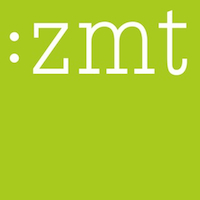Off topic: What is the world’s loveliest language? Thread poster: Maria Teresa Borges de Almeida
|
|---|
Another interesting article published recently on “The Economist”:
“What is the world’s loveliest language?
Linguists tend to say that all languages are valuable, expressive and complex. They usually attribute negative attitudes to prejudice and politics. That is probably why no one has carefully studied the touchy question of which ones are seen as beautiful or ugly.
That is until three scholars—Andrey Anikin, Nikolay Aseyev and Niklas Erben Joha... See more Another interesting article published recently on “The Economist”:
“What is the world’s loveliest language?
Linguists tend to say that all languages are valuable, expressive and complex. They usually attribute negative attitudes to prejudice and politics. That is probably why no one has carefully studied the touchy question of which ones are seen as beautiful or ugly.
That is until three scholars—Andrey Anikin, Nikolay Aseyev and Niklas Erben Johansson—published their study of 228 languages last year*. They hit upon the idea of using an online film about the life of Jesus, which its promoters have recorded in hundreds of languages. Crucially, most recordings had at least five different speakers, as the film has both exposition and dialogue. The team recruited 820 people from three different language groups—Chinese, English and Semitic (Arabic, Hebrew and Maltese speakers)—to listen to clips and rate the languages’ attractiveness.
What they found was that nearly all the 228 languages were rated strikingly similarly—when certain factors were controlled for (of which more below). On a scale of 1 to 100, all fell between 37 and 43, and most in a bulge between 39 and 42. The highest-rated? Despite the supposed allure (at least among Anglophones) of French and Italian, it was Tok Pisin, an English creole spoken in Papua New Guinea. The lowest? Chechen. The three language groups broadly coincided in their preferences. But the differences between the best and worst-rated languages were so slight—and the variation among individual raters so great—that no one should be tempted to crown Tok Pisin the world’s prettiest language with any authority.
A few factors did make the raters say they quite liked the languages they heard. But those seem unrelated to intrinsic qualities. First, being familiar with a language—or even thinking they were familiar with it—made raters give a language a 12% prettiness boost on average. And there seemed to be some regional prejudices. If a rater said that a language was familiar, he or she was asked to say what region it came from. Chinese raters, for example, clearly preferred languages they thought to be from the Americas or Europe, and rated those they thought from sub-Saharan Africa lower. (When raters said they were unfamiliar with the languages, such preferences disappeared.)
The other extrinsic factors that influenced ratings were a strong preference for female voices and a weaker preference for deeper and breathier ones. But try as they might, the investigators could not find an inherent phonetic feature—such as the presence of nasal vowels (as in French bon vin blanc) or fricative consonants (like the sh and zh sounds common in Polish)—that was consistently rated as beautiful. Only a slight dislike for tonal languages was statistically significant. Tonal languages are those that use pitch to distinguish otherwise homophonous words. Even Chinese subjects slightly disliked such languages, though Chinese itself is tonal.
Dr Johansson highlights some unanswered questions. His team had no information about which sounds tend to appear together (English strings along consonants—as in “strings”—in a way that many other languages do not.) Such a feature was beyond their ability to measure. So was prosody—roughly, the rhythm of a language. And with just five speakers per language, the presence of a couple of attractive or unattractive individual speakers could easily move a language’s rating this way or that.
Finally, the audio materials were scripted. This was a good thing in one way, because the raters heard the same part of the film (with the same meanings) in each language. But spontaneous, natural speech could make quite a different impression. Perhaps people like and dislike not the sound inventory of a language, but the way its speakers tend to speak it. If that is so, the attractiveness of a language might be better attributed to its speakers’ culture—not to the language itself.
Negative results in experiments usually do not make waves, but this one is both interesting—since it goes so strongly against people’s instincts—and cheering. The world is divided enough. As the researchers conclude, “We have emphasised the fundamental phonetic and aesthetic unity of world languages.” ▲ Collapse
| | | | | | Barbara Carrara 
Italy
Local time: 11:24
Member (2008)
English to Italian
+ ...
Henry Dotterer wrote:
Very interesting!
Thanks for sharing.
Dear Henry,
With all due respect, with everything that's going on on the ProZ website, and all the Forum threads that have been started reporting a number of issues that have been afflicting and affecting the site and/or the individual members/users for months, if not years, this is the one you picked to reappear on the Forum scene with, after an almost three-month absence (your latest post appeared in the 'ProZ very slow, KudoZ question "lost"' thread last 20 April)?
Very interesting indeed.
| | | | To report site rules violations or get help, contact a site moderator: You can also contact site staff by submitting a support request » What is the world’s loveliest language? | Trados Studio 2022 Freelance | The leading translation software used by over 270,000 translators.
Designed with your feedback in mind, Trados Studio 2022 delivers an unrivalled, powerful desktop
and cloud solution, empowering you to work in the most efficient and cost-effective way.
More info » |
| | CafeTran Espresso | You've never met a CAT tool this clever!
Translate faster & easier, using a sophisticated CAT tool built by a translator / developer.
Accept jobs from clients who use Trados, MemoQ, Wordfast & major CAT tools.
Download and start using CafeTran Espresso -- for free
Buy now! » |
|
| | | | X Sign in to your ProZ.com account... | | | | | |













